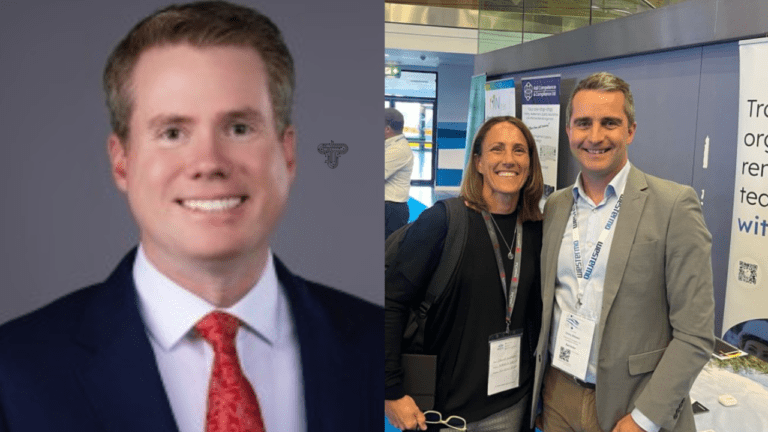The Indispensable Traits and Tools of Effective Leadership
Gone are the days when leadership was solely about steering a company toward its goals. Effective leadership in the new tech age focuses on building a supportive, inclusive organizational culture.
Today’s leaders influence interactions, decisions, and outcomes and align organizational culture with company values, vision, and mission.
In other words, leadership is critical in inspiring desired behaviors and standards by leading by example.
Values and Behaviors in Focus
Leaders are expected to exemplify the values they wish to inspire in their employees. In this context, ethical decision-making is of crucial importance.
It’s about making decisions based on principles of morality and integrity. In addition to the organizational context, leaders also need to consider societal norms.
However, to be able to do this, leaders need to recognize ethical dilemmas, understand honesty, integrity, and respect, balance conflicts reasonably, and monitor learning from outcomes.
This is a lot to take in, which is the main reason why businesses are increasingly considering promoting interim leadership to fractional executives.
Obtaining Leadership Efficiency
Even though there are different styles of leadership, some traits successful leaders embody are still considered universal, the first step in improving leadership efficiency is to build the desired team dynamics.
What all organizations have been preaching of late is fostering collaboration, inclusivity, and transparency. Leaders are expected to prioritize open communication, which is the basis for building a culture of trust and cooperation. An environment where employees share ideas and concerns will likely inspire engagement and loyalty.
Next, the focus is on adaptability and innovation. Teams are generally being encouraged to embrace new technologies and change management practices. Efficient communication plays a critical role in this regard.
Overcoming Project Management Issues
That being said, old habits die hard. Leadership should impact more than organizational decisions. The focus should be on team productivity coupled with employee satisfaction.
To overcome project management issues, leaders must learn to let go of obsolete practices and set the emotional tone to inspire a beneficial team mood, whether adhering to labor laws or building team productivity.
In this context, it’s important to note that not all management styles are equal. Thanks to workplace digitalization and hybrid work models, autocratic management and servant leadership are practices of the past.
Instead, desirable styles include a fine mixture of a couple of leadership styles, typically transformational leadership rooted in organizational mission and vision, collaborative leadership rooted in teamwork and transparency, democratic leadership rooted in joint decision-making, coaching leadership rooted in long-term development, transactional leadership rooted in clear expectations and rewards, and agile leadership rooted in continuous learning.
Combining different styles can prove efficient for international teams, as they are diverse.
Personal Growth in Focus
As mentioned above, effective leadership extends beyond the workplace. It is expected to influence the employees’ professional development and inspire individual growth.
For starters, leaders should provide skill development opportunities and influence the outcome by giving constructive feedback. This is typically achieved through mentorship, learning programs, career advancement plans, or a combination of these.
For starters, leaders should provide skill development opportunities and influence the outcome by giving constructive feedback. This is typically achieved through mentorship, learning programs, career advancement plans, performance review phrases, or a combination of these
Leaders should empower employees to make their own decisions and take ownership of their actions. Recognizing team- and individual contributions plays a critical role in this context.
Efficient leaders know how to balance personal and professional growth. They know the importance of work-life balance and go the extra mile to align individual and professional goals.
Leaders skilled in conflict resolution can also significantly impact employee satisfaction. That’s why developing soft skills in leaders should be one of the main objectives of any business.
The Power of Empathy
Even though new tech has taken much of the human touch older generations used to rely on, leaders should still develop empathy. To be sure, performance management platforms can appear generic, but it’s the people behind the screens that make up the actual organizational culture.
The ability to understand and share the feelings of others profoundly impacts how leaders connect with their teams. Empathy enables leaders to build trust with employees, without which a positive work culture would be impossible to create.
Empathetic leaders demonstrate that they genuinely care about employee well-being and professional growth. This practice inevitably inspires a sense of belonging and loyalty and motivates employees to go above and beyond in their roles.
For starters, leaders should provide skill development opportunities and influence the outcome by giving constructive feedback. Effective cross functional team leadership plays a significant role in this process, typically achieved through mentorship, learning programs, career advancement plans, or a combination of these.
Read More
Conflict Resolution
Empathetic leaders stand a better chance of resolving conflicts amicably. It’s only natural that people who understand the perspectives and emotions of others can come up with perfect solutions to mitigating disagreements fairly.
Employees are more likely to respect a leader who attempts to understand their viewpoints and address misunderstandings constructively.
Overall, effective leadership is all about balancing soft skills, new technology, and, above all, efficient communication.







